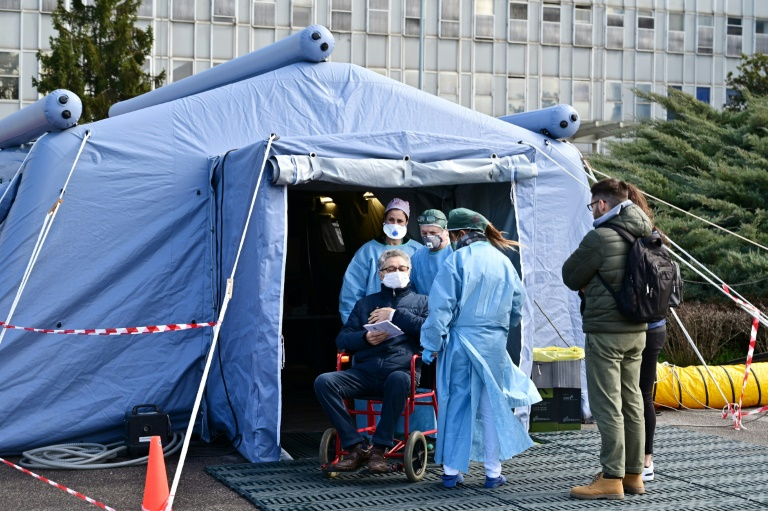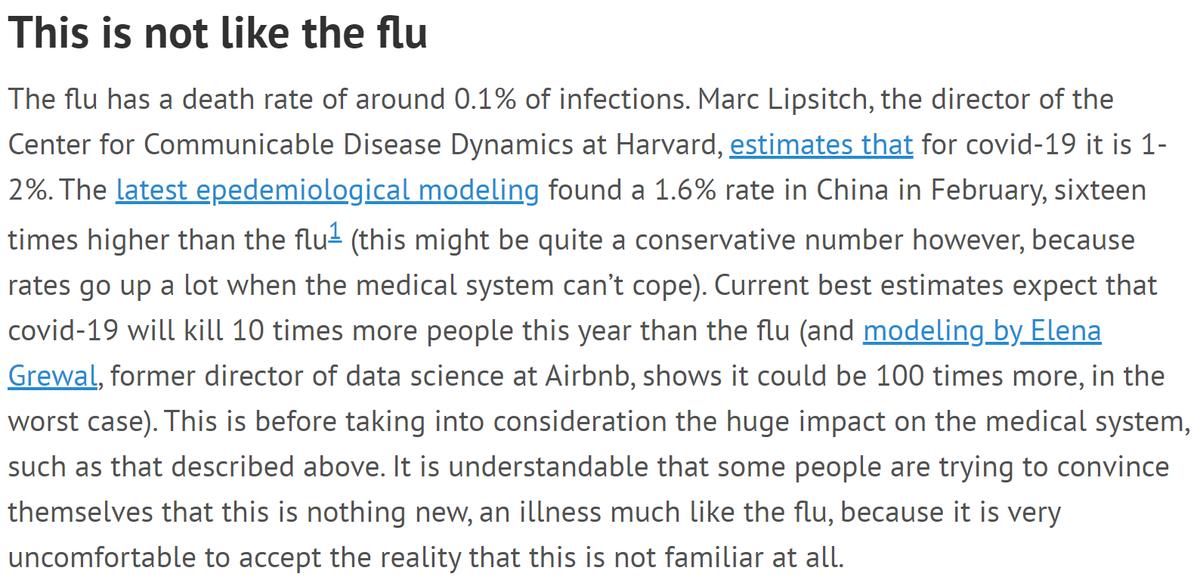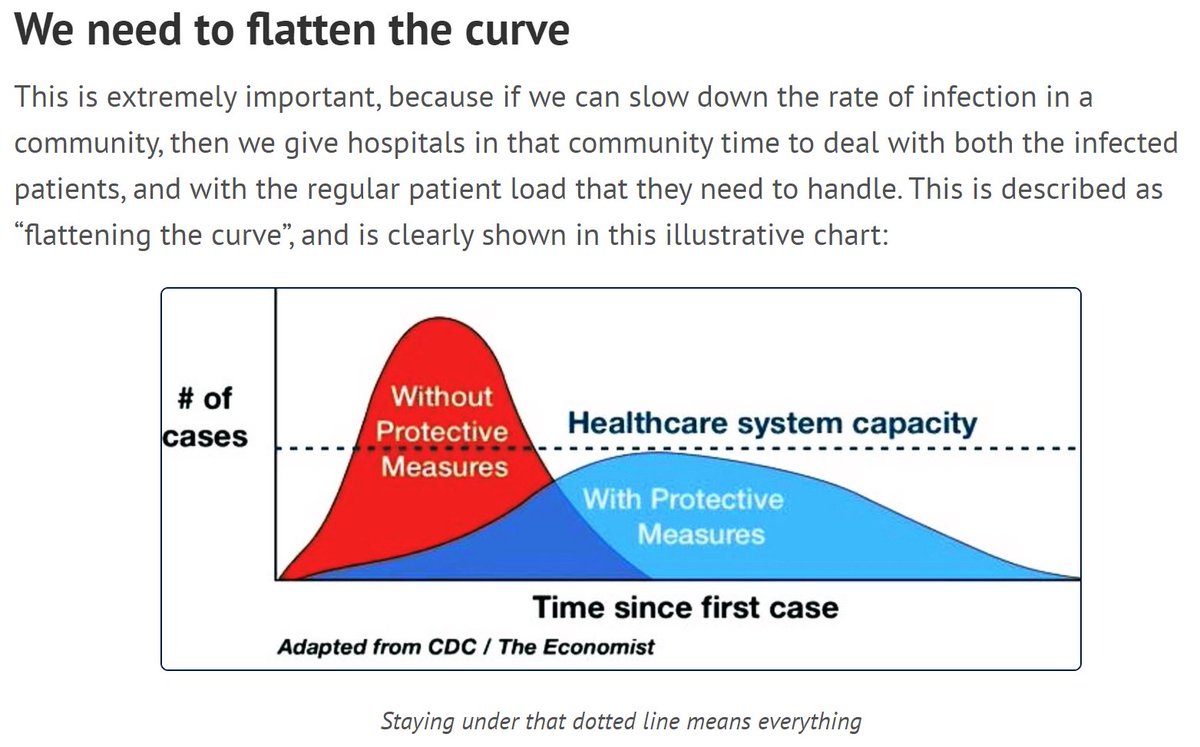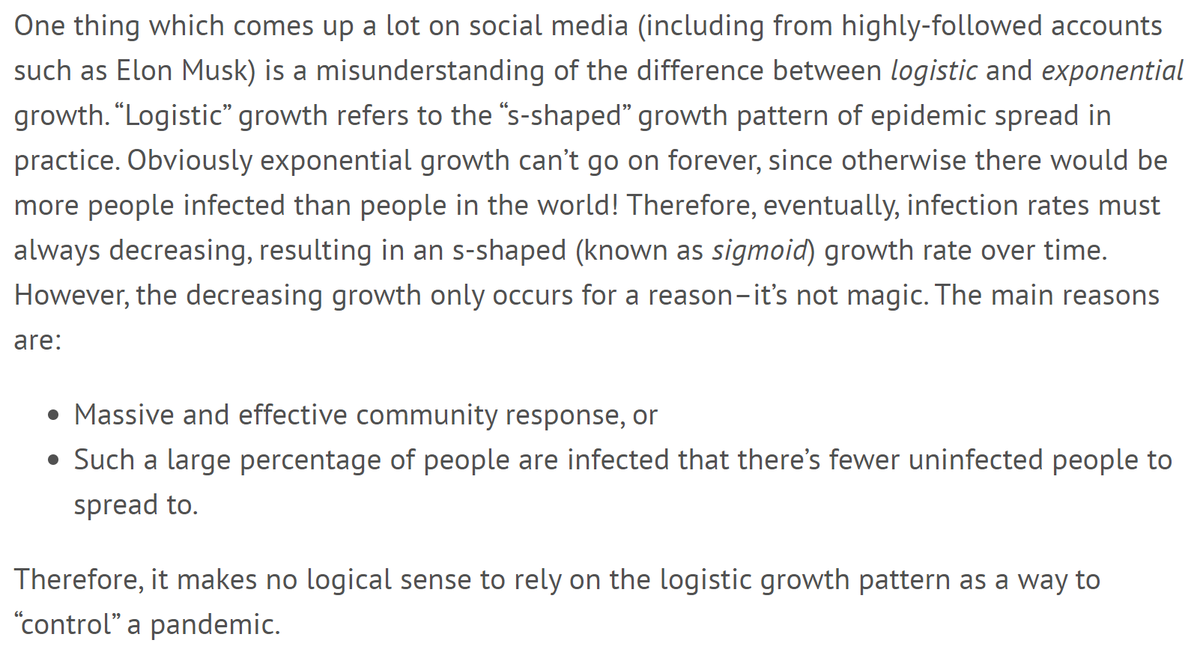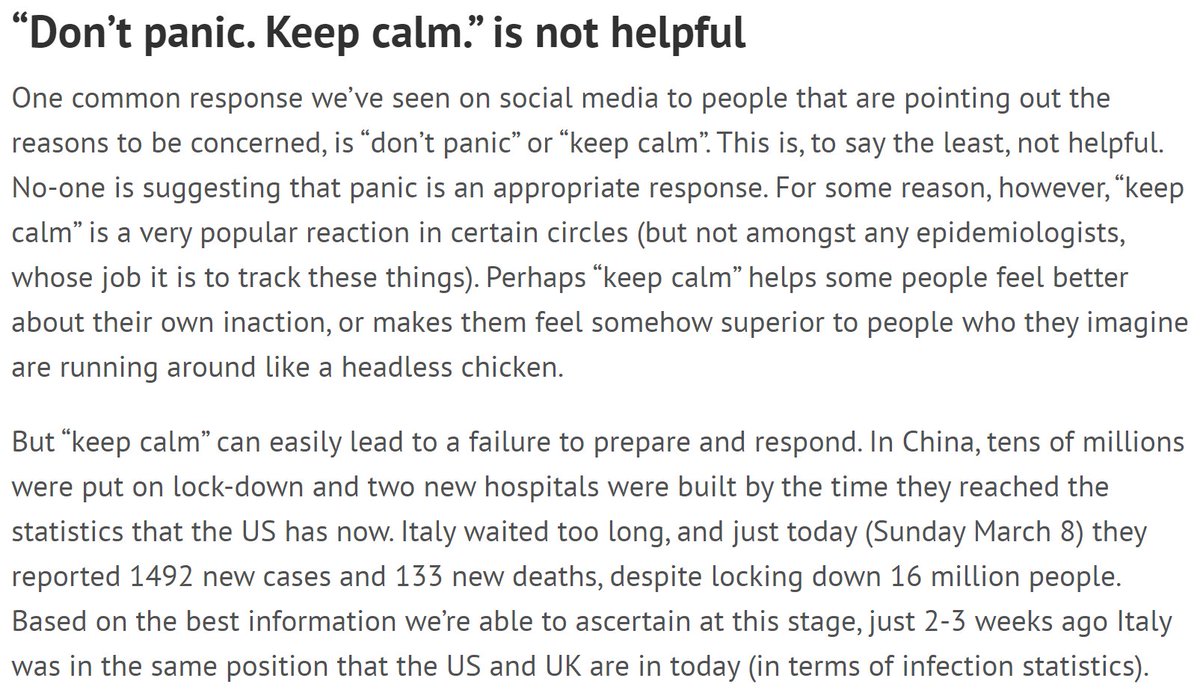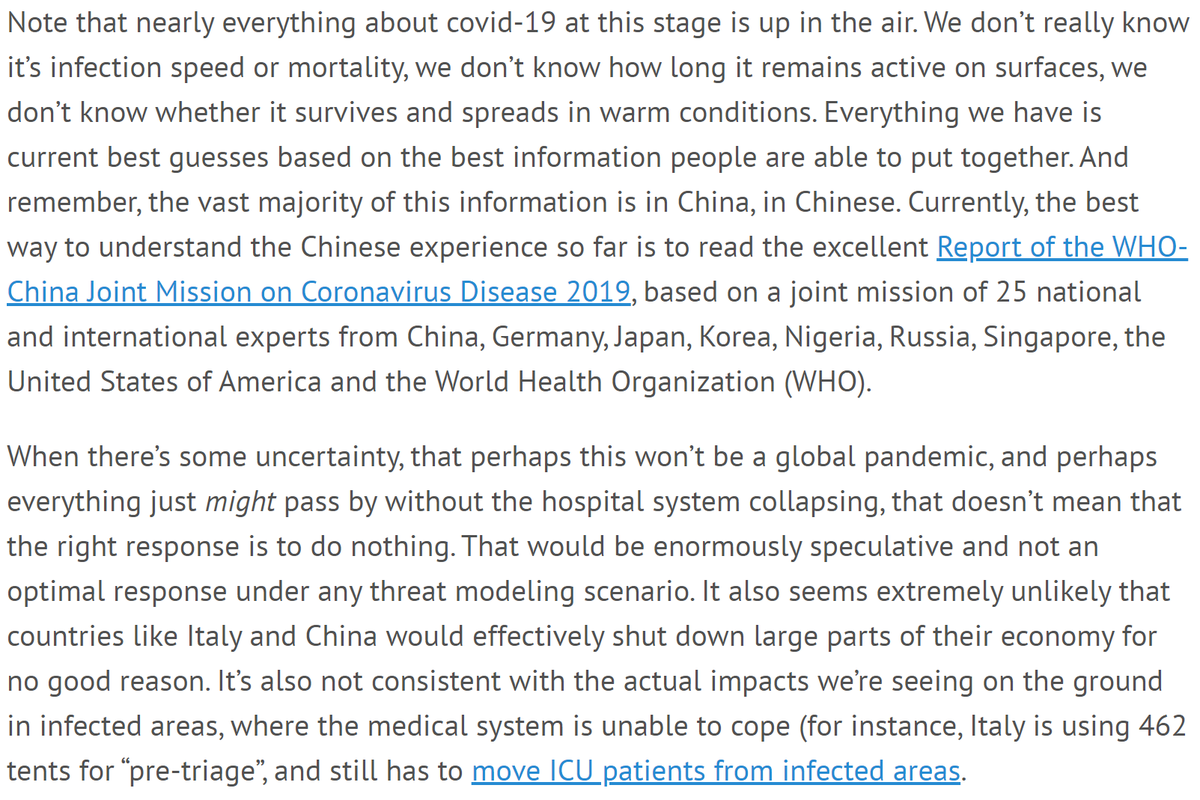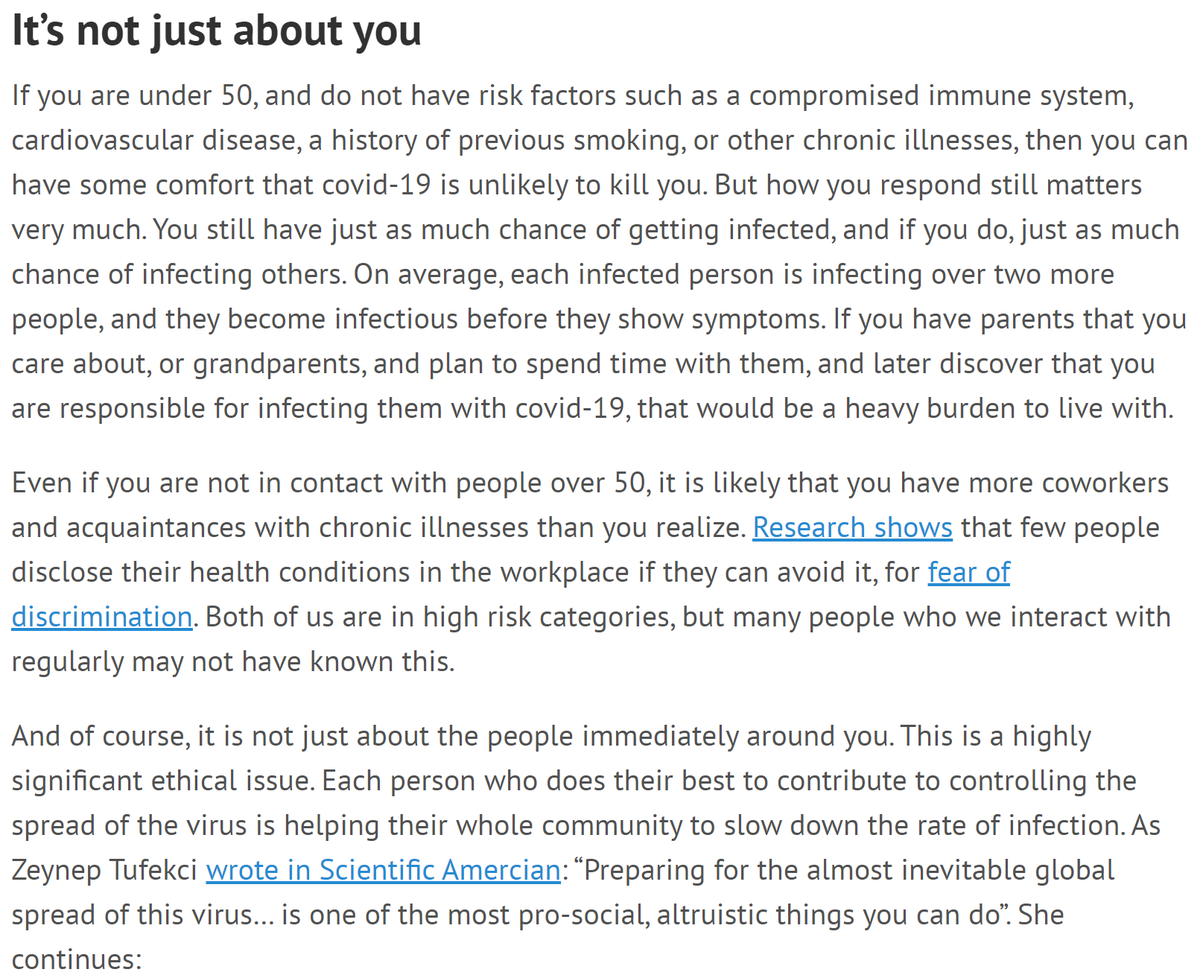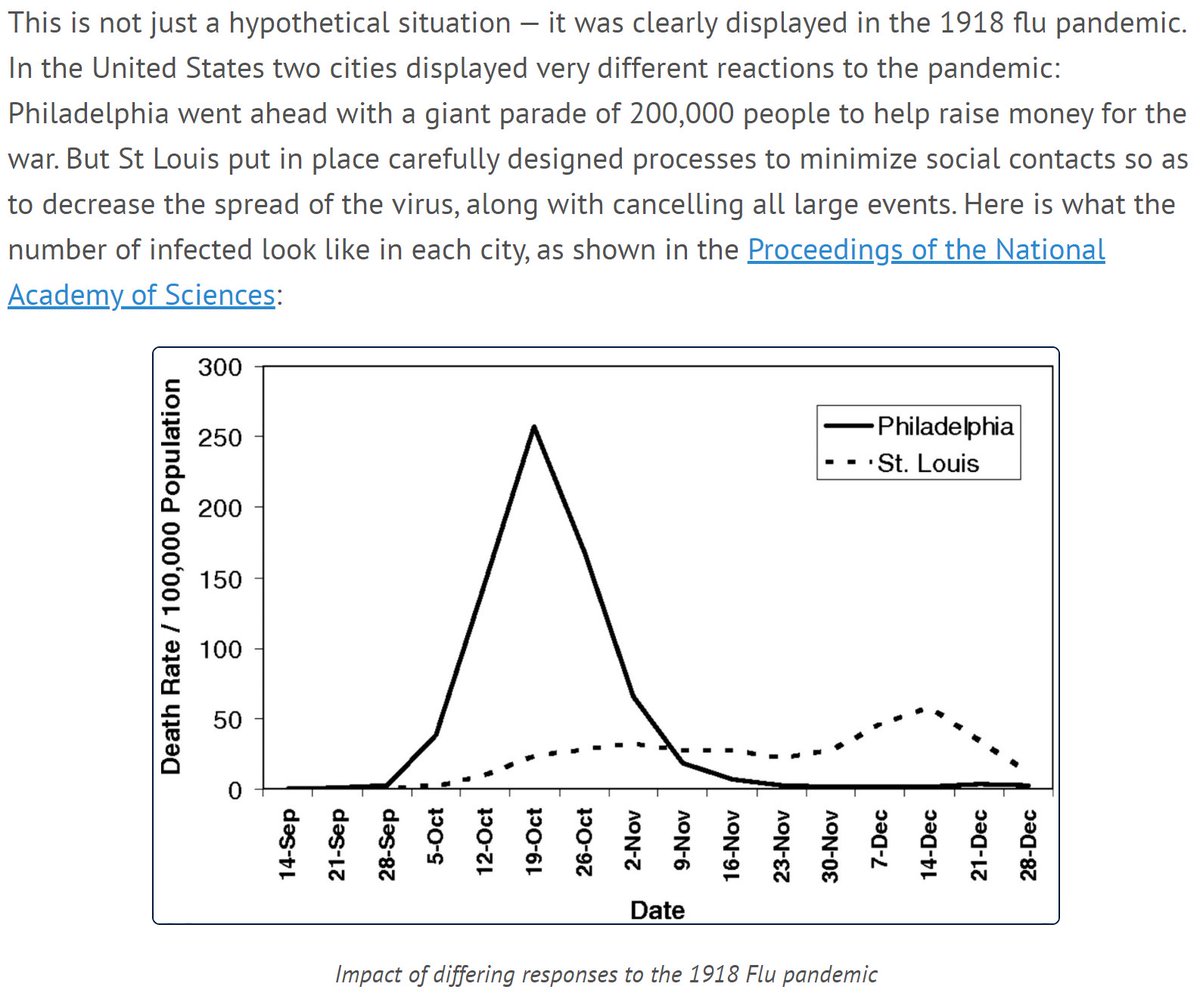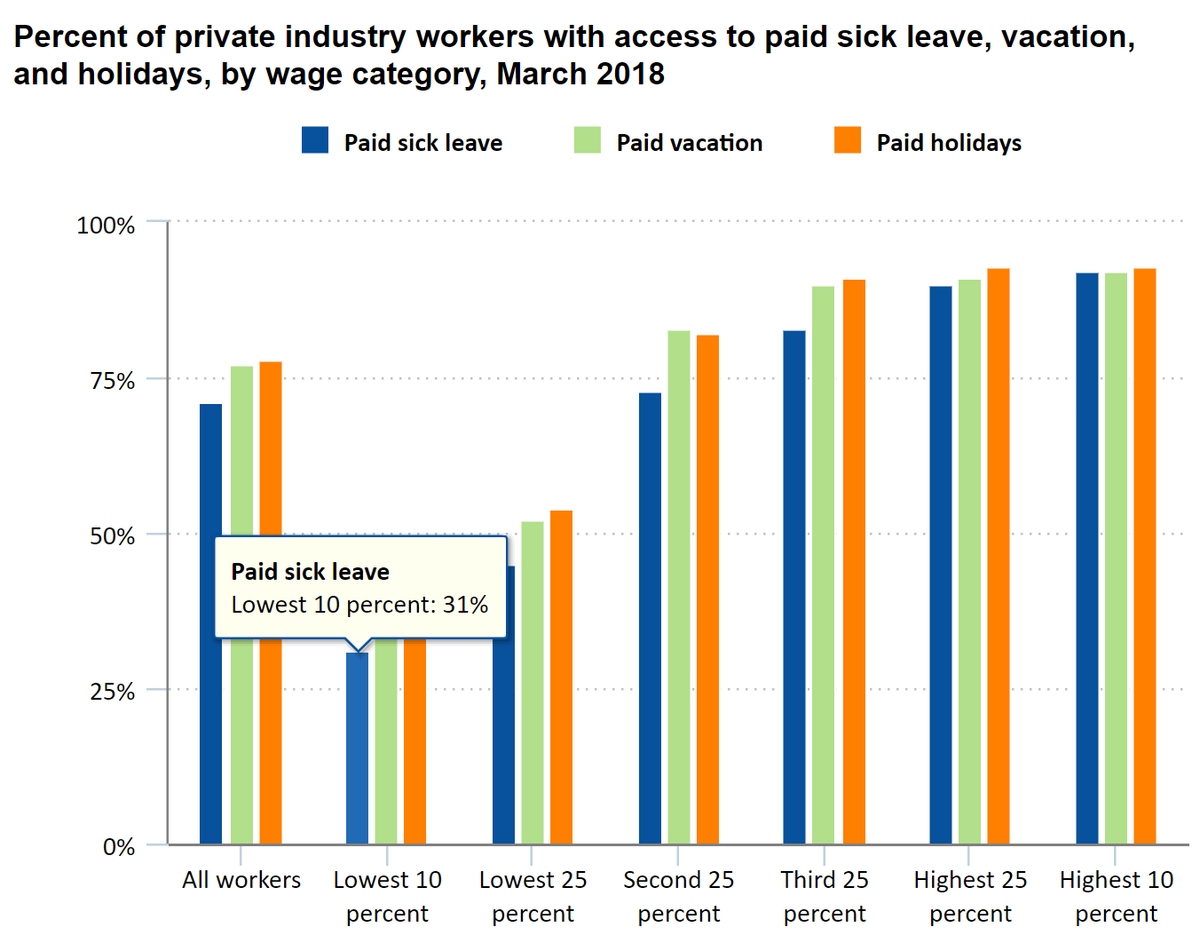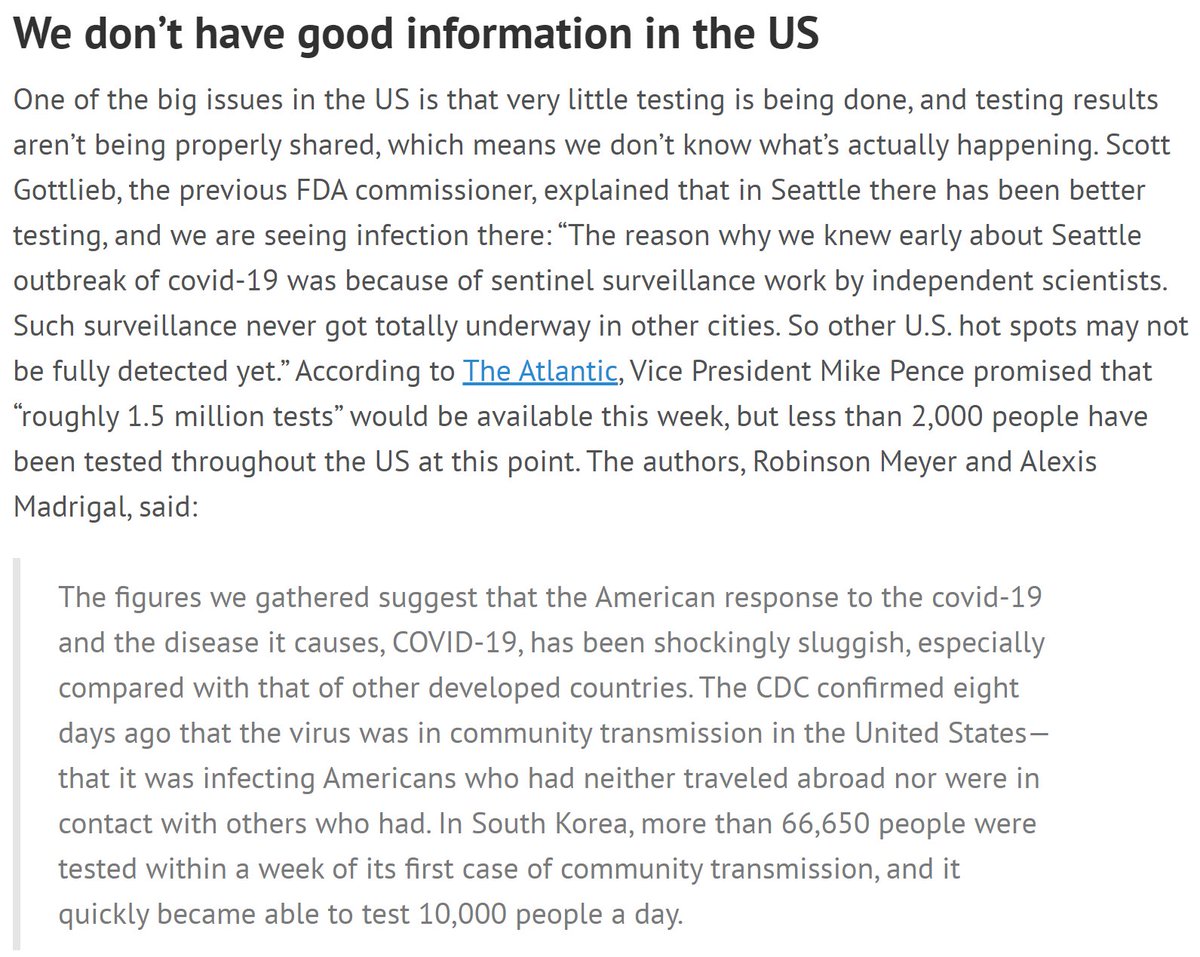As data scientists, we (with @math_rachel) have done our best to look at the data around covid-19, and what it means to you and your community.
Our view: it is appropriate to be very concerned, and significantly change your lifestyle, right now.
1/13 https://www.fast.ai/2020/03/09/coronavirus/">https://www.fast.ai/2020/03/0...
Our view: it is appropriate to be very concerned, and significantly change your lifestyle, right now.
1/13 https://www.fast.ai/2020/03/09/coronavirus/">https://www.fast.ai/2020/03/0...
The impact is already clear. In Italy, 10 days ago, all was fine. Now it& #39;s not. 432 medical tents have been set up. 16 million people are on lock-down.
By the time the impact in your community is clearly visible, you& #39;ve missed your best opportunity.
2/
By the time the impact in your community is clearly visible, you& #39;ve missed your best opportunity.
2/
If you are in a position of authority, you should be doing everything you can to avoid the need for groups of people to get together (provide sick leave; make meetings virtual; cancel events or make them online; etc...)
For everyone else, here& #39;s a list of things to do:
3/
For everyone else, here& #39;s a list of things to do:
3/
Epidemiologists are experts in studying the spread and impact of disease. Their modeling shows that covid-19 is not at all like the flu.
Don& #39;t let people who aren& #39;t familiar with epidemiology tell you otherwise. Modeling diseases is not intuitive, and needs proper tools.
4/
Don& #39;t let people who aren& #39;t familiar with epidemiology tell you otherwise. Modeling diseases is not intuitive, and needs proper tools.
4/
Fatalism is not the right response. We& #39;ve already seen that massive and systematic response can turn things around. It& #39;s going to require sacrifices, however.
5/
5/
If we can reduce the spread of this disease, then we give our hospitals time to give patients the care they need. (10% of those infected *need* hospital care, including oxygen for weeks.)
6/
6/
Many arm-chair experts are clinging to a belief that somehow logistic growth will magically save us from a pandemic. Unfortunately, that& #39;s not how it works.
7/
7/
One of the most common responses on social media to people trying to explain what& #39;s really going on is "don& #39;t panic".
This patronizing response is neither appropriate or helpful. Don& #39;t do it.
8/
This patronizing response is neither appropriate or helpful. Don& #39;t do it.
8/
It is certainly true that there& #39;s a lot we don& #39;t know. But that& #39;s not a reason for complacency.
9/
9/
If you& #39;re under 50 and in good health, that& #39;s also not a reason for complacency. Responding to covid-19 is an ethical obligation for us all.
10/
10/
We should also do our best to learn from history. Although the flu of 1918 had different properties to covid-19, we can learn a lot by studying responses to it, and their impacts.
11/
11/
The impact will be greatest on those least equipped to handle it. For instance, the US Bureau of Labor Statistics shows that less than a third of those in the lowest income band have access to paid sick leave.
12/
12/

 Read on Twitter
Read on Twitter